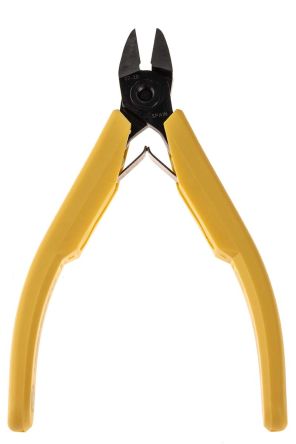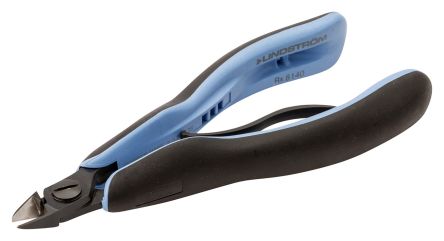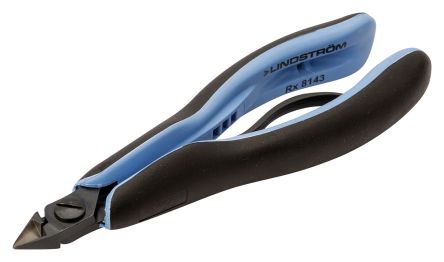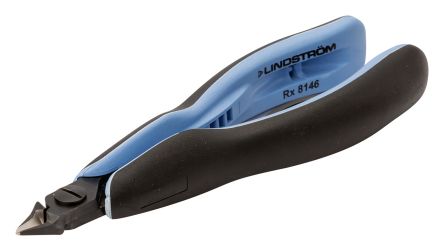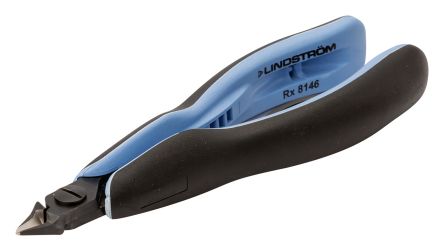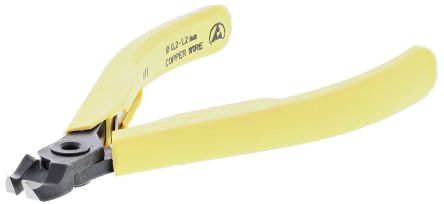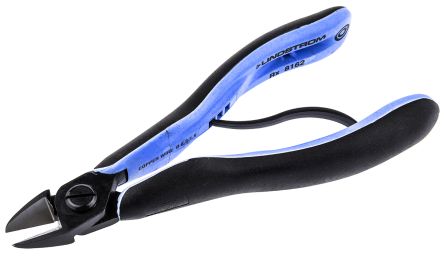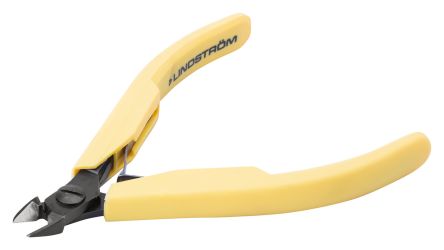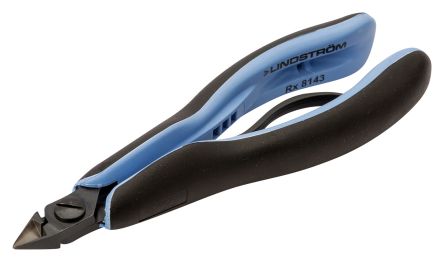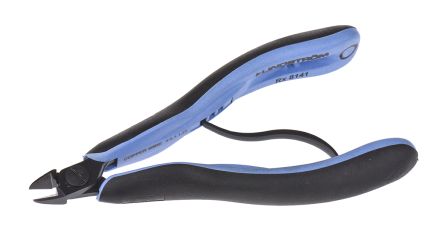- Automation & Control Gear
- Cables & Wires
- Enclosures & Server Racks
- Fuses & Circuit Breakers
- HVAC, Fans & Thermal Management
- Lighting
- Relays & Signal Conditioning
- Switches
- Batteries & Chargers
- Connectors
- Displays & Optoelectronics
- ESD Control, Cleanroom & PCB Prototyping
- Passive Components
- Power Supplies & Transformers
- Raspberry Pi, Arduino, ROCK, STEM Education & Development Tools
- Semiconductors
Lindstrom Cutters
Cutters are handheld tools designed for cutting cables and wires along with a variety of materials such as metals, plastics and more. Wire cutters typically consist of two levers connected closer to one end by a fulcrum, with the shorter end forming the jaw. Cutters come in a variety of types and sizes and the three basic types are locking, adjustable and non-adjustable.
In order to ensure user comfort and safety, most models of wire cutters & cable cutters will have insulated handles, allowing you to be protected whilst working and providing a firm and comfortable grip. In addition to standard insulation or cushioning, some wire cutters will be VDE-insulated to protect the user when working with potentially live electrical equipment.
What are cable cutters used for?
While the name may be fairly clear, some variations of cable cutters can also be used to perform other actions. For example, linesmans cutters also have a small flat section along the jaw for gripping objects as well as their cutting surface. The application will dictate which is the best type of cutter for you to use.
Types of Cutters
Used by professionals and DIYers alike to cut wires effectively, there are many types of cutters designed for specific applications:
- Diagonal cutters, also known as side cutters or side cutter pliers, are ideal for gripping, splicing or cutting wires, as well as stripping wire insulation. Side cutters cut by indenting and wedging the wire apart and give a cleaner cut than using a knife or scissors.
- End cutters are also known as nippers and are used to cut through wire, springs, nails, bolts and rivets. They have an almost flat-bladed head, which allows for a cut close against the surface without digging into it.
- Wire rope cutters are used for the clean shearing of wire rope without fanning. The jaws pull the wire rope into them and trap the cable before performing a clean cut.
- Snipe nose or needle nose cutters are designed to hold fine objects and cut them cleanly without applying pressure to the wider area, which larger cutters may do and cause damage.
- Cable cutters or wire cutters are most commonly used in electrical applications and are designed specifically to be used with cables and wires. Wire cutters may have some form of covered handle for user comfort, it is important not to confuse plastic or rubber coatings with electrical insulation.
- Linesmans cutters are popular in communications and electrical tasks. They have a short gripping surface toward the tip of the jaw, and a cutting surface extends back to the fulcrum. They are ideal for cutting leads or stripping insulation.
For more information on wire cutters, cable cutters, general cutter types and best practices, read our comprehensive guide here.
